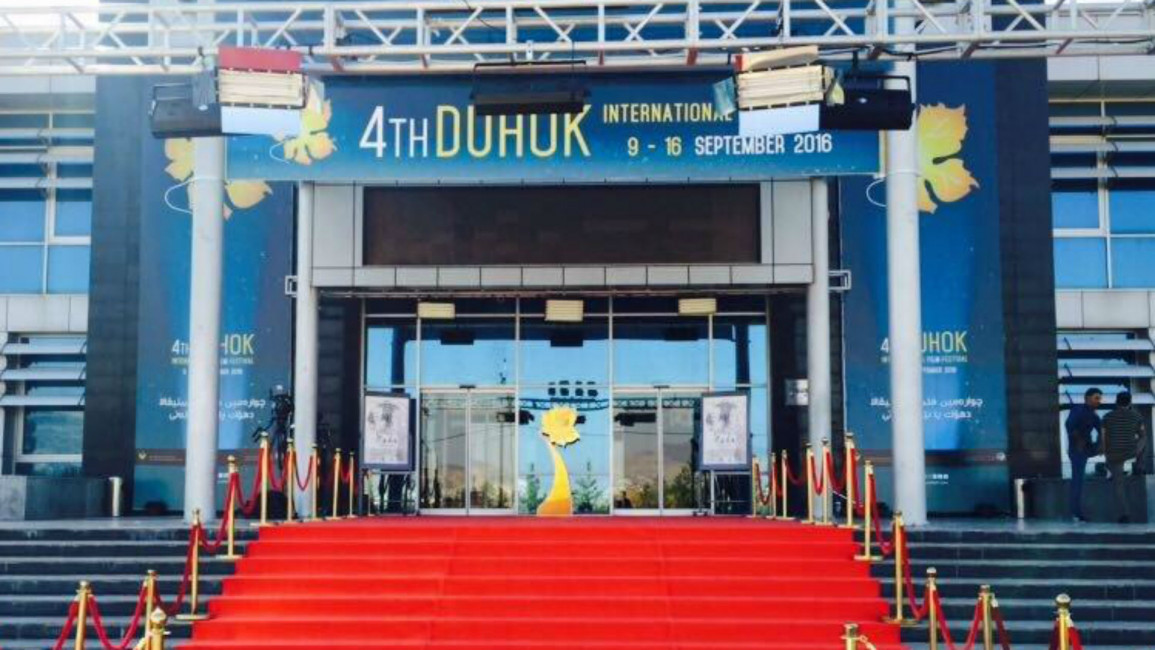Iraq festival pulls Israeli film amid warming Gulf-Israeli relations
Israeli director Yona Rozenkier's "The Dive", which portrays three brothers carrying out their father's last wish, was screened this month at the Duhok International Film Festival in northern Iraq.
But festival organisers said on Saturday they had "unwillingly" withdrawn the film from the world cinema competition, "due to regional complications and considerations".
The move led the jury to refuse to announce a winner for the best international feature film, saying in an online statement the change to the selection "compromised our ability to make a final decision".
Jury president Kristian Feigelson said in a separate statement that the film's withdrawal was the result of "political pressure coming officially from Baghdad".
But Iraq's culture ministry denied interfering in the festival.
"We have not been contacted by the organisers of the festival and we have not been involved at any level in the holding of this event," a ministry spokesman told AFP.
Like all but two Arab states, Iraq does not formally recognise the state of Israel and the countries are technically still at war.
Last year a former Miss Iraq caused a scandal by taking a photo with Miss Israel, but Israel has far better relations with Iraq’s Kurdistan region and was the only country to support the autonomous region's independence referendum last year, which was branded illegal by Baghdad.
Across the region, prior clandestine relations with Israel have come to the forefront of public life.
Earlier this week, officials in the United Arab Emirates took the Israeli sports minister on a guided tour of the grand mosque of Abu Dhabi as she made the first official visit to the Gulf state.
Miri Regev posted a video of herself at the Sheikh Zayed Grand Mosque in the Emirati capital on Monday in the latest sign of warming ties between Israel and Gulf states.
"I am glad that I have had the privilege to be the first senior Israeli figure to sign the guestbook at the mosque. I chose to do so in Hebrew, to send a message of brotherhood," Regev said, while dressed in Islamic clothing.
She thanked authorities in the UAE for the "official invitation" to visit the country and hailed the trip as "moving and powerful".
Regev arrived in Abu Dhabi on Friday to meet with Israeli athletes taking part in the Judo Grand-Slam, where the Israeli national anthem was performed for the first time in a Gulf state.
Israeli media published images and videos of Regev and the Israeli team, singing Hebrew songs and performing a Sabbath celebration in an Abu Dhabi hotel.
This is the first time an Israeli minister has made an official visit to the UAE and also the first time Israeli athletes have been granted permission to display the country's flag and play the national anthem in a Gulf state.
The move came after the UAE in September reversed its policy of banning Israeli athletes from competing under the Israeli flag or playing the national anthem
The developments also come days after Prime Minister Binyamin Netanyahu paid an official visit to the Gulf state of Oman, the first such meeting in over 20 years.
Palestinian officials have strongly condemned Oman for hosting Netanyahu, saying it was a betrayal of the Palestinian people who still live under brutal Israeli occupation in Gaza and the West Bank.
The visit was also criticised by pro-Palestine activists and media outlets.
Netanyahu has frequently boasted of warming, behind-the-scenes ties with Arab states, drawn to Israel in part out of mutual animosity toward Iran.
Israel and the Gulf Arab countries have shared concerns over Iran's activities across the region, including its nuclear programme and its involvement in civil wars in Syria and Yemen.
The UAE, like most Arab countries, does not have official diplomatic ties with Israel.
Follow us on Twitter: @The_NewArab


![Thousands gather in front of the Cannon House Office Building and the US Capitol to demand the US pressure Israel on a ceasefire in its conflict with Gaza. [Brooke Anderson/The New Arab]](/sites/default/files/styles/image_330x185/public/2023-10/393387495_710301464290105_8375393679399060035_n.jpg?h=ff8c3fa3&itok=WdtyAWP_)
